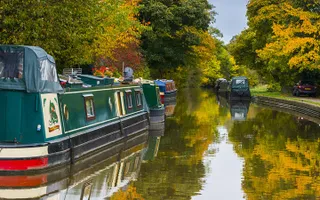Before you buy a boat licence, you'll need a valid Boat Safety Scheme (BSS) certificate or exemption.
The BSS is like a boating version of the MOT. It sets standards for boats, their installations and components, which you must meet before buying your licence.
By law, your boat must comply with our standards for boat construction.
If your boat is an open craft, such as a canoe, rowing boat or dinghy, and has no engine, this does not apply. All other boats (including houseboats) must have a boat safety certificate (for older boats) or recreational craft directive (RCD) for brand-new boats.
Why does the BSS scheme exist?
The BSS scheme is designed to minimise the risks of fires or explosions on boats. The standards combine essential safety needs and best safety practice advice. They include criteria for boat systems such as electrical installations, inboard/outboard engines, appliances, ventilation and fuels.
Which waterways does the BSS apply to?
The full set of BSS standards applies to boats based on all our canals and rivers, plus Environment Agency waterways.
What about newly built boats?
All new boats should already comply with the safety standards and have a certificate as meeting the recreational craft directive (RCD). If your boat is:
- fully fitted – you need to get a boat safety certificate after four years
- sail away – and you're fitting it out yourself, you'll need to get a boat safety certificate after one year, no matter how far you've got with the fit-out
Boats with no gas, electrical, heating or fuel systems are exempt. Otherwise, your boat must comply with the BSS standards at all times when on our waters.
Visit the Boat Safety Scheme website for all the details you need, including how to find a boat safety examiner.
What if I'm just visiting from other waterways?
If you don't have any of the above, you can still get a short-term visitor licence if you fill in and send us a boat condition declaration application form.





